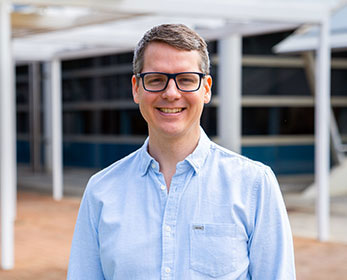 Adolescents are particularly vulnerable to re-evaluating the role of music in their lives as they reach the end of secondary school and consider their future.
Adolescents are particularly vulnerable to re-evaluating the role of music in their lives as they reach the end of secondary school and consider their future.
New research from Edith Cowan University (ECU) has unveiled the critical role parent values and assumptions play in influencing high-achieving students to pursue a career in music.
One-to-one interviews conducted with Year 12 students and their parents at an Australian boys’ school has triggered an in-depth look at how adolescents are particularly vulnerable to re-evaluating the role of music in their lives as they reach the end of secondary school and consider their future.
At least four of the 21 students interviewed had previously decided to pursue their passion and dream by studying music at university after completing high school.
Lecturer in Music Education at the School of Education at ECU, Dr Jason Goopy said two of these students revealed that they were being directly influenced by a parent to backflip on their original choice to study music.
“These parents actively disrupted their son’s imagined ‘musical possible self’ – which can be thought of as their projected personal and professional future musical identity.”
Dr Goopy said parents’ existing assumptions or misunderstandings about jobs in the creative industries – as well as the wide range of music careers available – was a major challenge to overcome.
“Often when parents imagine a career in music they envision a rock-star fantasy or a struggling busker, but careers in music are complex and most successful professional musicians sustain portfolio careers that involve a range of performing, creating, teaching and business management activities,” Dr Goopy said.
“Past research has been devoted to preparing tertiary music students for industry, but my study reveals plans for future music careers must begin years before during secondary school.”
 Dr Jason Goopy.
Dr Jason Goopy.
These interviews were conducted separately with both students and their parents, in the final term of Year 12.
“What my discussions with students and parents showed is that schools need to play a more proactive role in empowering adolescents and parents to make informed decisions on prospective university music study, careers, and the role of music in their futures.
“In one case, while the influencing parental figure did encourage their son to study music and play instruments in high school, they didn’t value or support him to study music at university – describing music careers as being incompatible with family life.”
A parent of student Conor* who planned to study music at university, stated:
This is his gap degree while he decides what he wants to do.
The study revealed tension between Conor’s love for music and perceived financial instability, paired with family aspirations for him to pursue a high-income profession.
“Conor voiced concerns about financial security and being able to provide for a family, so his personal experiences of hardship and the opinions of influencing family figures certainly impacted his decision-making,” Dr Goopy said.
“He had been encouraged to pursue medicine by his family but also expressed that studying music at school had given him a broader perspective on the career opportunities available in music.”
Conor said:
I’d really love to go and run my own studio. Knowing what I’ve experienced and how much fun I’ve had, it’s just exciting being in the studio and making music. I’d really love to do that as a career.
Another student Elijah* was persuaded to change his decision to study music at university to a degree in medicine instead – and described refocusing his prior music aspirations from a “passion” to a “side interest”.
His mother even recruited doctor friends as role models to campaign and convince her son, actively questioning him on how he could be sure he’d be wealthy and succeed in music, versus medicine.
“Deliberately intervening at this critical stage in identity development can have life-changing consequences, and they are not always positive,” Dr Goopy said.
“Parents want the best for their children and have loving intentions, but they can play a powerful role in redirecting a child’s musical identity and the musical future they imagine for themselves, based on misunderstandings.
“Teachers and career advisors have a responsibility to deliver career education programs that reflect a broad and contemporary view of the workforce to allow students and their families to make informed decisions regarding their musical futures.
“Specialist music pathway education could allow secondary school students and their parents to imagine achievable music employment that might have been previously inconceivable.
“If we don’t focus our attention on better supporting high school music students and their families, we risk losing talented young musicians who could have meaningful music careers and make a valuable contribution to society.”
*This article presents the narratives of two Year 12 music students, Conor and Elijah (pseudonyms).
 Adolescents are particularly vulnerable to re-evaluating the role of music in their lives as they reach the end of secondary school and consider their future
Adolescents are particularly vulnerable to re-evaluating the role of music in their lives as they reach the end of secondary school and consider their future



